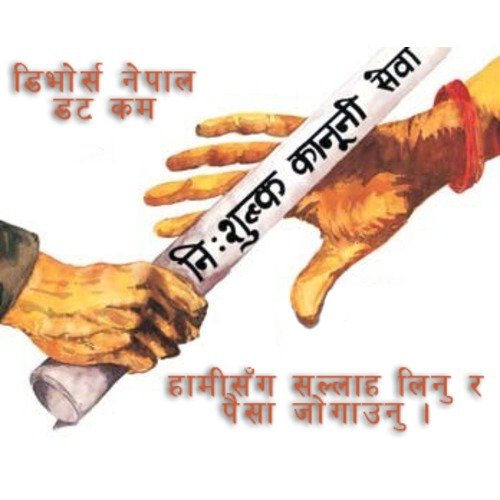Best Creditor Lawyers in Pokhara
Share your needs with us, get contacted by law firms.
Free. Takes 2 min.
List of the best lawyers in Pokhara, Nepal
About Creditor Law in Pokhara, Nepal
Creditor Law in Pokhara, Nepal is centred on the procedural rights and responsibilities of creditors and debtors. This includes the legal processes surrounding debt collection, protecting the rights of creditors in instances where debts cannot be paid, and ensuring fair treatment for debtors.
Why You May Need a Lawyer
If you're a creditor, you might need a lawyer to help enforce your legal rights to recover funds if your debtor is unable, or unwilling, to repay their debt. If you're a debtor, you'll need a lawyer to help defend your rights, negotiate with creditors, and navigate insolvency or bankruptcy proceedings. Missteps in these processes can lead to unnecessary losses and legal complications.
Local Laws Overview
The core legal issues surrounding creditor and debtor relations in Pokhara come under the Insolvency Act, 2006 and Contract Act, 2000. These statutes cover the rights and obligations of creditors and debtors, possible resolutions such as debt restructuring, and procedures leading to insolvency or bankruptcy. The legal system also emphasizes out-of-court resolutions where possible, promoting mediation and negotiated settlements.
Frequently Asked Questions
What is a creditor?
A creditor is a person or institution that lends money or services to another entity under an agreement that the latter will pay back the loaned amount or services.
Can a lawyer help in recovering my debts?
Yes, a lawyer can help in enforcing your rights as a creditor to recover your debts. They can guide you through the process, from sending legal notices to initiating legal proceedings if required.
What should I do if I'm unable to repay my debts?
If you're unable to repay your debts, seek legal advice immediately. A lawyer can help you understand your options, which could include negotiating with your creditors or filing for bankruptcy.
What is insolvency?
Insolvency is a legal term used to describe the financial state of being unable to pay back the owed debts within the agreed-upon time period.
How can I protect my rights as a debtor?
Understanding the laws and seeking legal advice is the best way to protect your rights as a debtor. Don't ignore the situation; instead, proactively take steps to address it.
Additional Resources
The Office of Company Registrar in Nepal can provide further information regarding insolvency procedures. Also, Nepal Law Commission is a useful point of reference for all associated legislations.
Next Steps
If you require legal advice pertaining to creditor law in Pokhara, seek out a local attorney specializing in this field. Prepare all necessary documents such as contracts, communications, and any other information related to your financial dealings for your attorney to review.
Lawzana helps you find the best lawyers and law firms in Pokhara through a curated and pre-screened list of qualified legal professionals. Our platform offers rankings and detailed profiles of attorneys and law firms, allowing you to compare based on practice areas, including Creditor, experience, and client feedback.
Each profile includes a description of the firm's areas of practice, client reviews, team members and partners, year of establishment, spoken languages, office locations, contact information, social media presence, and any published articles or resources. Most firms on our platform speak English and are experienced in both local and international legal matters.
Get a quote from top-rated law firms in Pokhara, Nepal — quickly, securely, and without unnecessary hassle.
Disclaimer:
The information provided on this page is for general informational purposes only and does not constitute legal advice. While we strive to ensure the accuracy and relevance of the content, legal information may change over time, and interpretations of the law can vary. You should always consult with a qualified legal professional for advice specific to your situation.
We disclaim all liability for actions taken or not taken based on the content of this page. If you believe any information is incorrect or outdated, please contact us, and we will review and update it where appropriate.








